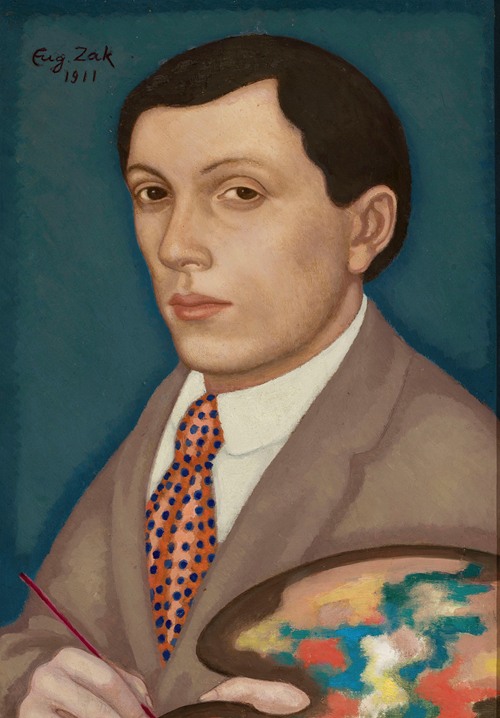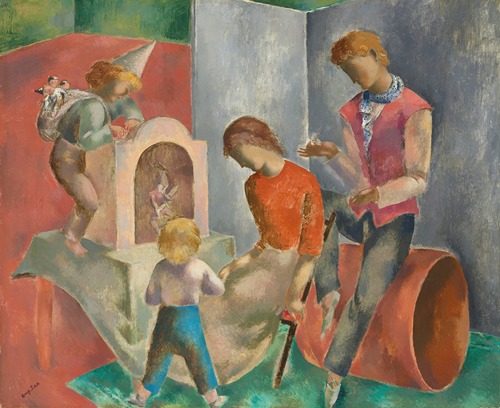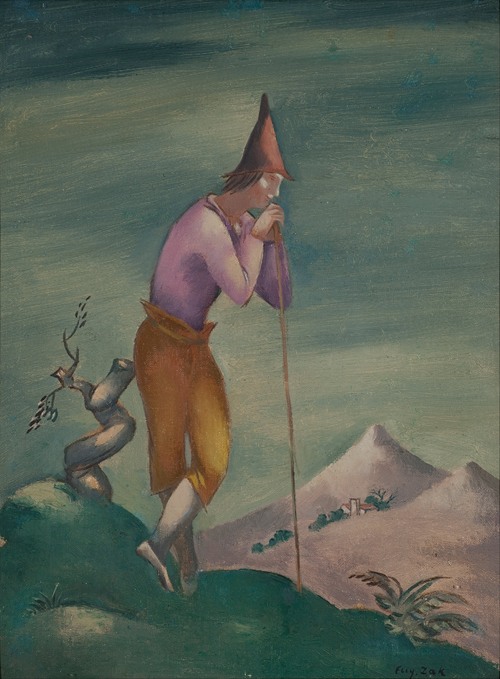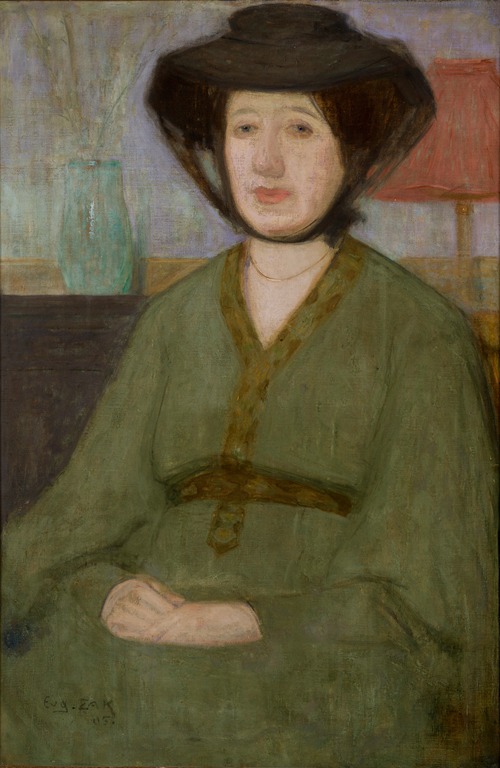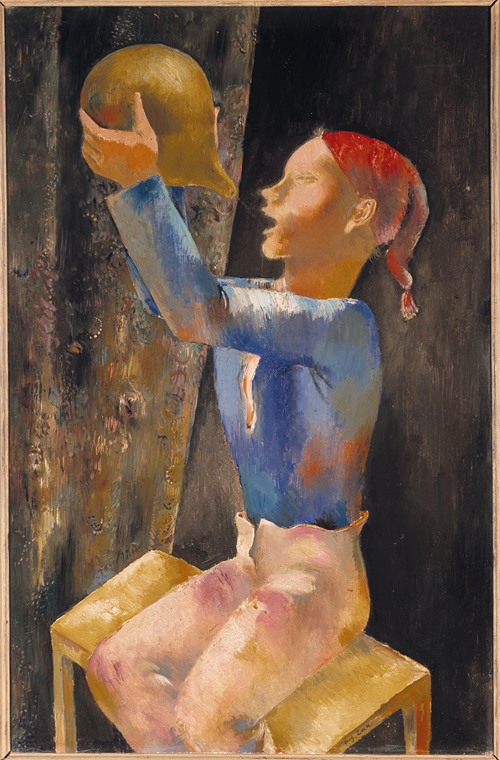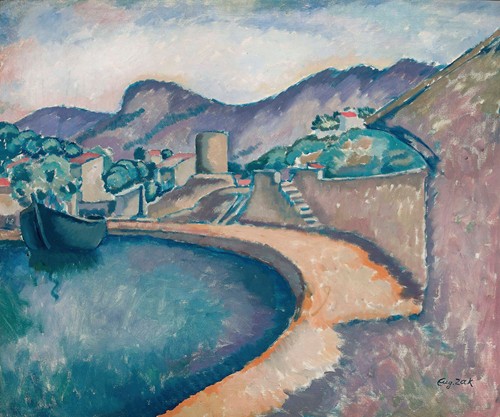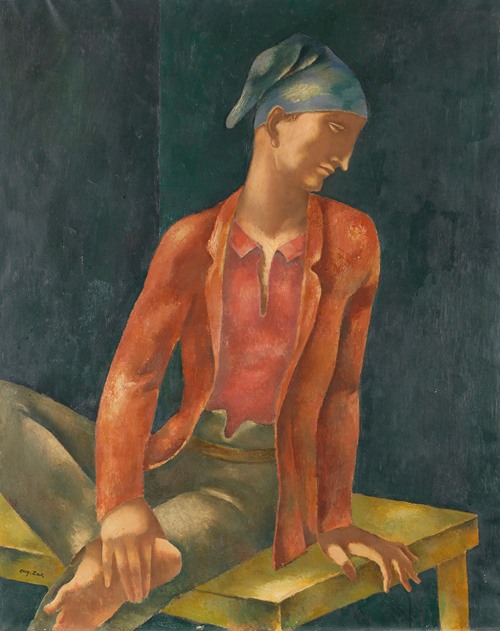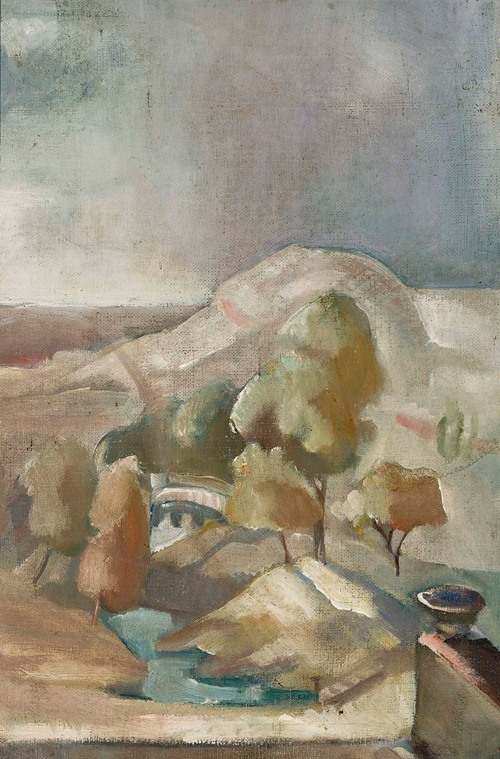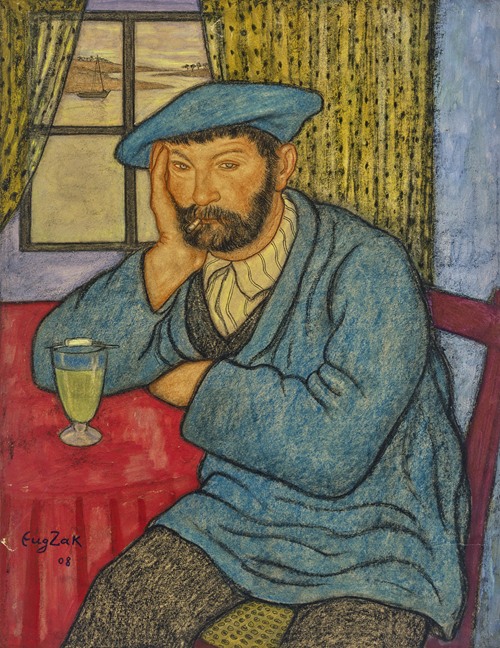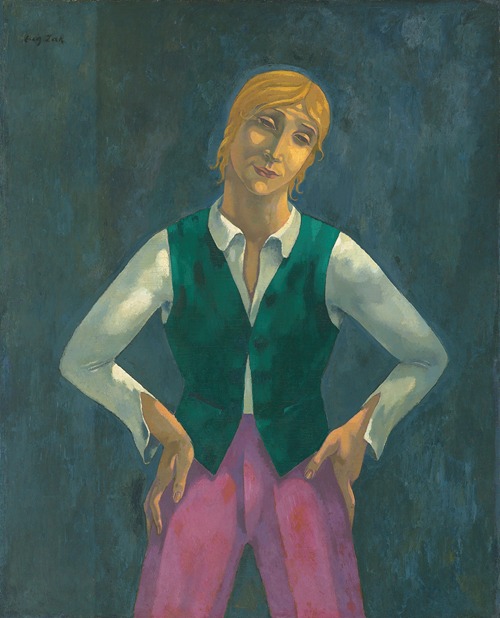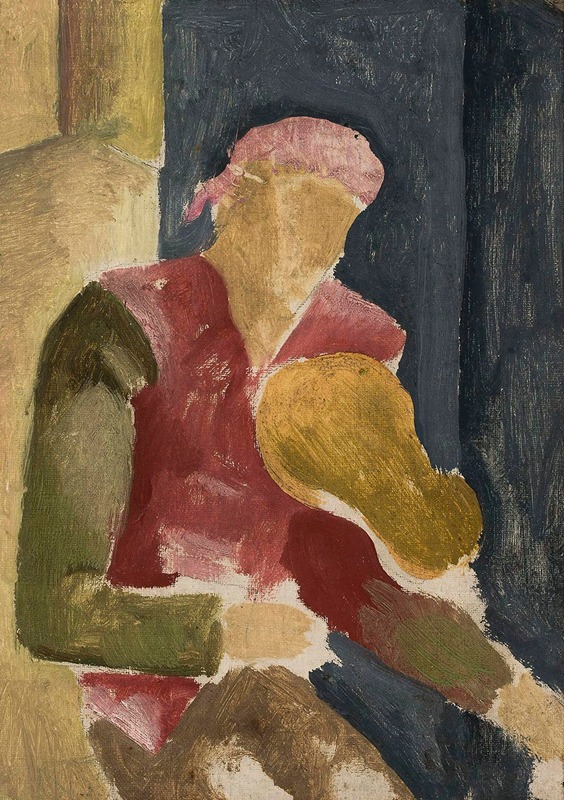
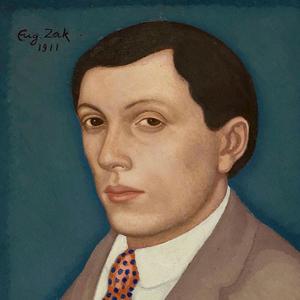
Eugeniusz Zak, also known as Eugène Zak and Eugene Zak, was a Polish artist.
Eugeniusz Zak was born to Jewish family in Mogilno, Minsk Governorate (nowadays Belarus). As a boy he moved to Warsaw, where he graduated from a non-classical secondary school. In 1902, he left for Paris to undertake studies, first at the École des Beaux-Arts in the studio of the aged master of academism Jean-Léon Gérôme, and then at Académie Colarossi in the studio of Albert Besnard. In 1903, he traveled to Italy and toward the end of the year to Munich, where he entered a private school run by the Slovenian Anton Ažbe.
In 1904 he returned to Paris. In the same year his debut took place at the Autumn Salon and two years later he was accepted as a jury member in the drawing section of this institution. In the years 1906-1908 he made trips to Brittany (Pont l’Abbé, among other places). On the Seine he was involved in the life of the Polish colony, participating in the Society of Polish Artists in Paris, among other organizations. He befriended many Polish artists there, including Roman Kramsztyk, Wacław Borowski, Leopold Gottlieb, Jerzy Merkel, Elie Nadelman, Mela Muter, Tytus Czyżewski and Zygmunt Menkes.
His reputation grew rapidly. The French government purchased of one of his paintings for the Musée du Luxembourg (1910), he organized a one-man show at Galerie Druet (1911), he was connected with important personalities of Parisian cultural life, including the critics Adolf Basler and André Salmon, and he became an exhibiting member of the Société Normande de Peinture Moderne. In 1912 he became a professor at the Académie de La Palette. In 1913 he married a beginning painter Jadwiga Kon, who managed the well-known Galerie Zak after his death. Between 1914 and 1916 he stayed in southern France (Nice, St Paul-de-Vence, and Vence), and also visited Lausanne in Switzerland.
In 1916 he returned with his family to Poland, settling in his wife's hometown of Częstochowa. He associated with the Formists. Upon his frequent visits to Warsaw, he collaborated with the future members of Rytm [pl] ("rhythm"), a group he co-founded in 1921. In 1922 he left Poland for good. First, he went to Germany, where he had already been known and esteemed before the World War I. He visited Berlin and later Bonn, where he carried out a commission to decorate the interior of the villa of the architect Fritz August Breuhaus with paintings. He co-operated with the periodical Deutsche Kunst und Dekoration, publishing articles on certain artists who were close to him. In 1923 he settled once again in Paris, where he joined his friends Zygmunt Menkes and Marc Chagall. His growing artistic fame and financial successes ended suddenly when he died of a heart attack in Paris, aged 41. He did not live to take over the faculty of painting, which had been offered to him by the Academy of Fine Arts, Cologne, Germany.

